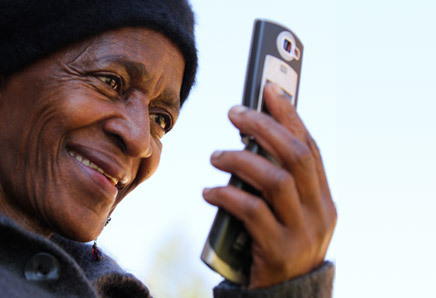Suzana Moreira of Mowoza interviewed by Madeline Parish on July 12, 2013.
Suzana Moreira, founder of moWoza, recently caught up with the WJF team and shared about moWoza’s mission. Since March 2012 Suzana and her team have been committed to building reliable and affordable supply chains for store owners in peri-urban and rural Africa. They are doing this though the building of relationships and the use of mobile devices She gave great insight into the challenges and triumphs moWaza has seen as well as some personal experiences that drew her to address this need.
Who are your customers?
moWoza is a commerce service which uses mobile as an ordering and delivery tool. The company is providing an easy-to-use mobile solution for customers to order, ship and track their inventory. With most of Africa’s population residing in semi-urban and rural areas, moWoza allows it’s customers to “shop wherever they are, at any time”.
moWoza’s customers are small scale traders who run their own stores in their villages. The majority of moWoza’s traders are women with the majority being sole traders. For most female sole traders, running these trading posts are important because for most women it’s a livelihood that either supports their family or heavily supplements their husband’s income.
What problem are you trying to solve?
As the traders are often operating in semi-urban to rural areas without access to a reliable supply of goods they are forced to travel to the larger cities to replenish inventory. moWoza’s is addressing this gap so that sole and small scale traders can easily access a supply chain without having to dislocate from their point of trade. These traders are operating in complex supply chains that are fraught with exploitation, human rights issues and criminal activity.
moWoza is currently focused on addressing the problem of inadequate access to goods that currently exists in Mozambique. Lack of access to essential products is exacerbated by inadequate distribution and logistics networks. These inefficiencies in the supply chain contribute towards the difficulties experienced by those who are living under US$2 per day. With the majority of people in Mozambique living on under US$2 per day and struggling to access essential products at affordable prices, a solution is critical. By redesigning the supply chain and introducing the mobile phone as a tool, moWoza can streamline the supply chain for essential goods to get where they need to affordably and efficiently.
There are two phases: streamlining the supply chain and introducing the technology. For the technology aspect the role of mobile phones is vital because most people already have a mobile phone that they can use to connect. Suzana believes that mobile technology is going to enable millions of Africans across the continent to leapfrog desktop and enable Africans everywhere to access information and content. As mobile services grow, the intersection of online and offline will give way to a new retailing business model. These new retailing models will involve those customers and traders that traditional vendors and suppliers of goods have considered as off the grid.
How did you become interested in that problem?
Suzana became interested in this problem after meeting several crossborder traders who openly spoke of their difficulties. But it was when Suzana travelled into Morrocco and saw how the Moroccan shuttle traders where moving products that she decided to push to develop a mobile tool streamline the supply chain.
There are also significant human rights and transparency issues in these informal supply chains which need to be addressed.
What is your solution to that problem?
I think that a big part of the solution lies in looking at logistics and figuring out where its possible to bring in technology in to make the logistics work and function efficiently. There are two phases: streamlining the supply chain and implementing the technology. But alongside this the relevant support needs to be rolled out.
Support needs to involve training and education on how to use technology that is being offered to the traders.

How has the William James Foundation competition and mentoring program helped you?
The William James Foundation competition and mentoring program has really helped up refine our plan and focus on the role of each stakeholder in our business. In Africa, trust is crucial to success of business especially when offering prepaid services to price sensitive consumers. The mentoring program touched on this topic and it focused the team on exploring strategies to address trust across the entire service offering.
What are your major challenges?
Like most businesses that are offering mobile services in Africa, building trust is crucial to the success of moWoza’s model. By working with trusted networks and having constant representation in the areas where moWoza is being trialled is helping to build trust and loyalty.
Mapping an informal supply chain across an entire country is a challenging task but the moWoza team will be working with local stakeholders. These collaborations will facilitate moWoza’s training, support ultimately leading to increased adoption and usage.
By Madeline Parrish, Communications Intern